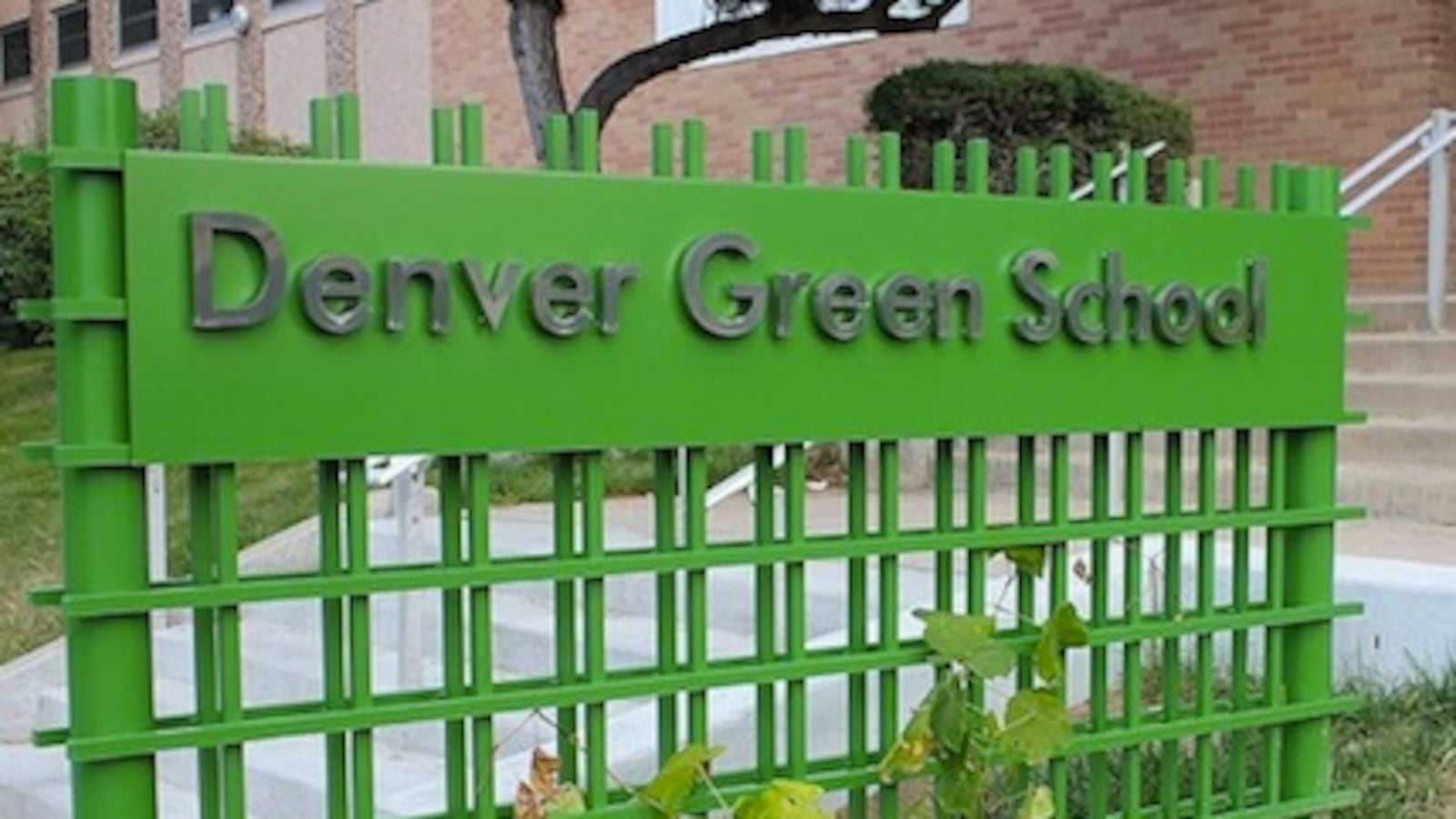Denver teachers whose students did well on state tests, in addition to teachers who work in so-called hard-to-serve schools with high populations of students living in poverty, are expected to receive bonuses in their December paychecks.
The bonuses are part of ProComp, Denver Public Schools’ teacher incentive pay system. These particular one-time bonuses are usually given in the fall but they’re coming late this year, after months of bargaining between the district and the teachers union. The two sides had to figure out different ways to distribute the money due to changes in state tests.
There are several different incentives under ProComp but these bonuses relate to three of them: High Growth, which is usually given to teachers whose schools show a certain amount of academic growth on state tests; Top Performing, which is similar but also takes into account other measures, such as graduation rates; and Exceeds Expectations, a bonus given to teachers whose individual students show a certain level of academic growth on the tests.
The bonuses are usually based on scores from state tests taken the previous spring. However, Colorado switched last spring to a new set of tests, known as PARCC. Because the bonuses rely heavily on academic growth, a measure of how well students do on tests year after year compared to their peers, and because there is only one year of PARCC data available, it wasn’t possible to distribute the ProComp incentives in the same way.
So the district and the union had to come up with a different way to dole out the money.
The agreement, which was announced this week, calls for combining the High Growth and Top Performing incentives and giving a bonus of up to $5,100 to teachers at schools that meet certain criteria. They include whether the school’s students had been showing growth on the old state tests and how the students did on the new tests compared to students at similar schools.
The criteria are a fair proxy for how those two incentives are usually distributed, said Denver Classroom Teachers Association Executive Director Pam Shamburg.
Teachers and licensed staff at 83 schools will receive those bonuses, according to a letter signed by Superintendent Tom Boasberg and DCTA President Henry Roman.
But Shamburg said it was more difficult to come up with a comparable way to distribute the Exceeds Expectations incentive. In the end, DPS and the union decided to give that money to teachers and licensed staff who work in hard-to-serve schools.
Under ProComp, hard-to-serve schools are defined as schools with a high percentage of students who qualify for free or reduced-price lunch, an indicator of poverty. The percentage varies by the type of school; for example, more than 92 percent of elementary school students must qualify for subsidized lunch for that school to be considered hard-to-serve.
Teachers who work in hard-to-serve schools already get a monthly bonus under ProComp. This one-time bonus will be in addition to that, Shamburg said.
The amount that each person will receive is yet to be determined. The agreement calls for splitting a pot of $1,377,000 — which is the amount of money usually distributed for the Exceeds Expectations incentive — among all teachers and staff members who qualify.
Shamburg said it was important to come to an agreement that delivered the bonuses to teachers as quickly as possible. “ProComp has become a significant part of their pay,” she said. “If they miss this, it’s like a pay reduction. They work really hard. They deserve to get their pay.”
Susana Cordova, DPS’s chief of schools and soon-to-be acting superintendent, agreed.
“Part of the reason we felt some urgency about getting to an agreement is because we value our teachers and want to make sure they know that,” she said.
The DPS school board is scheduled to vote to ratify the agreement on Thursday. Cordova said the district’s goal is to include these bonuses in teachers’ paychecks at the end of December.
The agreement also extends the overall ProComp contract between the district and the union until August 2016, and it extends the master agreement until August 2017 to allow the two sides more time to bargain. Shamburg said the union will be asking for several revisions with the goal of increasing Denver teachers’ salaries and providing more predictability about their pay.

